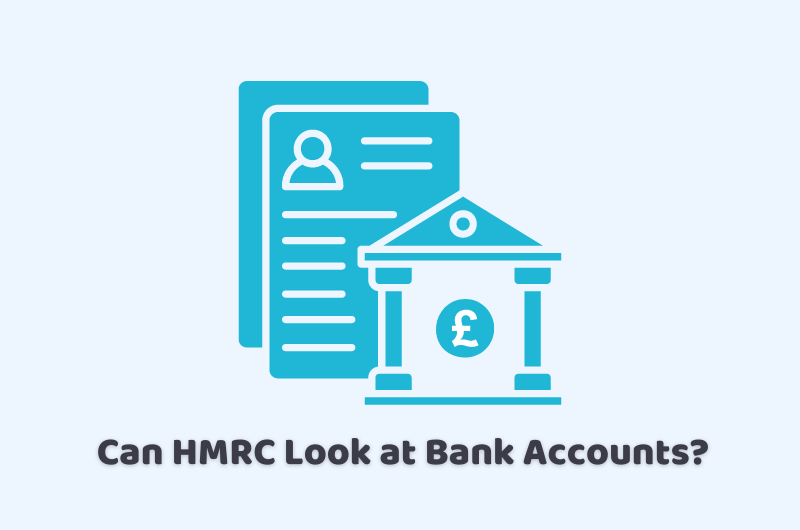19/06/2024Accounting , Finance
Thinking can HMRC look at bank accounts? In the UK, HMRC plays a crucial role in ensuring tax compliance and investigating financial irregularities. As part of their efforts, HMRC may need to access individuals’ and businesses’ bank accounts to verify tax returns, detect fraud, or collect tax debts. However, this raises important questions about privacy, data protection, and the limits of HMRC’s powers. Can HMRC simply access bank accounts at will, or are there specific circumstances and safeguards in place? What rights do taxpayers have to keep their financial information confidential, and how can they appeal if they feel HMRC has overstepped its bounds? As we navigate the complex landscape of tax enforcement and financial regulation. It’s essential to understand the rules and limitations surrounding HMRC’s access to bank accounts in the UK. In this discussion, we’ll delve into the legal framework, procedures, and safeguards that govern HMRC’s access to bank accounts. This will shed light on this important aspect of tax administration. Get in touch with one of our professionals to learn more about can HMRC look at bank accounts. We will love to hear out your queries and provide instant solutions. Can HMRC Look at Bank Accounts? Here is why HMRC can look at bank accounts in the UK. HMRC’s Legal Authority HMRC’s powers to access bank accounts are rooted in various laws and regulations. This provides the legal framework for their investigations and information-gathering activities. Taxes Management Act 1970 This Act grants HMRC the authority to access taxpayer information, including bank accounts, for tax collection and enforcement. Section 20 of the Act allows HMRC to require banks and financial institutions to provide information about taxpayers’ accounts. Finance Act 2011 This Act introduces the “Assets Protection” regime, enabling HMRC to access bank accounts in suspected tax fraud or evasion cases. The Act also expands HMRC’s information powers, allowing them to request data from banks and other financial institutions. Data Protection Act 2018 While this Act protects individuals’ data, it also allows HMRC to process and share taxpayer information for tax purposes. HMRC must comply with data protection principles and ensure taxpayer information is handled confidentially and securely. Inspection Powers HMRC’s inspection powers allow them to enter premises, including banks, to inspect records and documents. This includes accessing computer systems and digital records. In some cases, HMRC may need court approval to access bank accounts or other financial information. This ensures that their powers are exercised proportionately and lawfully. Circumstances Under Which HMRC Can Access Bank Accounts? HMRC may access bank accounts in various situations, ensuring tax compliance and investigating potential fraud or evasion. Investigation of Tax Fraud or Evasion HMRC can access bank accounts if they suspect tax fraud or evasion. This includes false tax returns, hidden income, or assets. Audit or Compliance Checks During audits or compliance checks, HMRC may review bank accounts to verify tax returns. This ensures accurate reporting and detects potential discrepancies. Debt Collection and Enforcement If taxpayers owe taxes, HMRC can access bank accounts to recover debts, including through the Direct Recovery of Debts (DRD) scheme. National Security and Counter-Terrorism In rare cases, HMRC may access bank accounts as part of national security investigations or counter-terrorism efforts, in collaboration with other government agencies. Serious Organised Crime HMRC can access bank accounts if they suspect involvement in serious organised crime, such as money laundering or terrorist financing. Taxpayer Voluntary Disclosures If taxpayers make voluntary disclosures about undeclared income or assets, HMRC may access bank accounts to verify the disclosure and ensure accuracy. Court Orders or Warrants HMRC can access bank accounts if they obtain a court order or warrant, typically in cases of suspected fraud or criminal investigation. These circumstances demonstrate HMRC’s legal grounds for accessing bank accounts, striking a balance between tax enforcement and taxpayer privacy. How HMRC Accesses Bank Accounts in the UK? HMRC accesses bank accounts through various channels, utilising legal powers and collaborative relationships with financial institutions. Requests for Information HMRC sends formal requests to banks and financial institutions, seeking specific information about taxpayers’ accounts. For example transaction history, balances, and account holder details. Third-Party Data Providers HMRC uses third-party data providers, like credit reference agencies, to gather information on taxpayers’ financial affairs. This includes bank accounts and credit history. Collaboration with Banks HMRC works closely with banks and financial institutions. This may voluntarily provide information or grant access to accounts, facilitating investigations and compliance checks. Direct Recovery of Debts (DRD) Scheme HMRC uses the DRD scheme to recover tax debts directly from taxpayers’ bank accounts, with the cooperation of banks and building societies. National Fraud Initiative HMRC participates in the National Fraud Initiative, sharing data with other government agencies and public bodies. This is to detect and prevent fraud, including bank account fraud. Automated Processes HMRC utilises automated systems to match tax returns with bank account data, identifying discrepancies and potential fraud. Manual Reviews HMRC officers conduct manual reviews of bank statements and account records, verifying tax returns and investigating suspicious activity. With these channels, HMRC efficiently accesses bank accounts, ensuring tax compliance and detecting potential fraud. While maintaining appropriate safeguards for taxpayer privacy and data security. How to Ensure Protecting Taxpayers’ Rights? While HMRC has the power to access bank accounts, there are essential limits and safeguards in place. This is to ensure that taxpayers’ rights are protected and their personal and financial information is kept confidential. Confidentiality and Privacy HMRC is bound by strict confidentiality rules, ensuring that taxpayer information is not disclosed without consent, unless required by law or for tax purposes. Data Protection Act HMRC must comply with the Data Protection Act, safeguarding personal data and ensuring it is processed fairly, lawfully, and transparently. Independent Oversight The Adjudicator’s Office and the Parliamentary Ombudsman provide independent oversight, investigating complaints. This ensures HMRC’s powers are exercised fairly and reasonably. …
Read more
